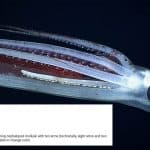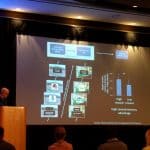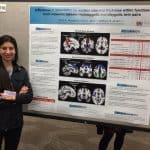Speaking at the Big Ideas in Neuroscience session at the recent CNS annual meeting, Angela Friederici of the Max Planck Institute discussed language as a unique human trait. Understanding of the words we use comes from different types of memories in different networks the brain. Neuroscientists often gain insight into these connections through individuals with […]
Buildings, Beauty, and the Brain: Q&A with Anjan Chatterjee
We all know intuitively that place shapes our everyday experiences. From the colors of the walls to the amount of light in the room, how we design buildings affects how we think, feel, and behave. A growing body of research is examining how architectural design affects us on the neural level. And a new research […]
Sorting Out What is Real: Q&A with Jon Simons
At the CNS meeting last March in San Francisco, I learned a new term during Marcia Johnson’s Fred Kavli Distinguished Career Contributions Award lecture: reality monitoring. Coined by Johnson, reality monitoring refers to how we distinguish what is real from what is imagined in our everyday lives. For some people, having an impairment in this seemingly […]
Your Brain on Channel Surfing
It’s Sunday morning and I am looking through tweets while watching the news. With smartphones now ubiquitous, such situation are increasingly common: taking in information with multiple interruptions, often by choice. In a new study, researchers studied this phenomenon on the neural level by having people watch movie clips in different combinations – finding significant […]
Prioritizing Gestures in Communication
The very first way babies communicate is through gestures (well, in addition to crying, that is). They may express “I want that” as a distinct pointing toward an object. As people grow older, gestures are not abandoned, but both spoken and body language become more ambiguous. Oftentimes, adults will point and gesture while talking without […]
How Will We Get to Brain Stimulation for Learning?
Guest Post by Tessa Abagis, University of Michigan In the 43 AD text Compositiones, Scribonius Largus, court physician to the Roman emperor Claudius, described a method to treat chronic migraines: placing torpedo fish on the scalps of patients to easing their pain with the electrical shocks the fish emit. This was well before the advent […]
The Digital Medicine of the Future: Watch Adam Gazzaley’s Public Keynote
Last Saturday, more than 1,300 people glimpsed a unique vision of brain fitness – one that more closely resembles cross-fit mixed with gaming than how we currently treat cognitive health. Adam Gazzaley of the University of San Francisco walked the CNS 2017 audience through the work his lab has been doing not only to create custom […]
Memory, Language, Action: Watch Big Ideas in Cognitive Neuroscience
Does the human brain process memory like a computer processes information? What enables human language with all its nuances and complexities? How does flexibility in the brain give rise to learning? These were just a few of the questions explored at Big Ideas in Cognitive Neuroscience, a special session at this year’s CNS meeting in […]
Curiosity and Reward as Motivational Drivers in Learning
Your mental state before and after learning plays a critical role in how well your remember something. This may seem obvious, but scientists are only just uncovering the neural processes underpinning this effect. At the CNS meeting today, Matthias Gruber of Cardiff University discussed two important mental states: when receiving reward and when curious. Recent […]
Twins Illuminate Genetic Influences on Brain Structure
How much of our brain structure is inherited ? Neuroscientists seeking to answer that question often turn to twin pairs, as they offer a unique window for understanding the influence of genetics on who we are. New work presented at the CNS conference this week has found that brain structures involved with executive functions such […]











